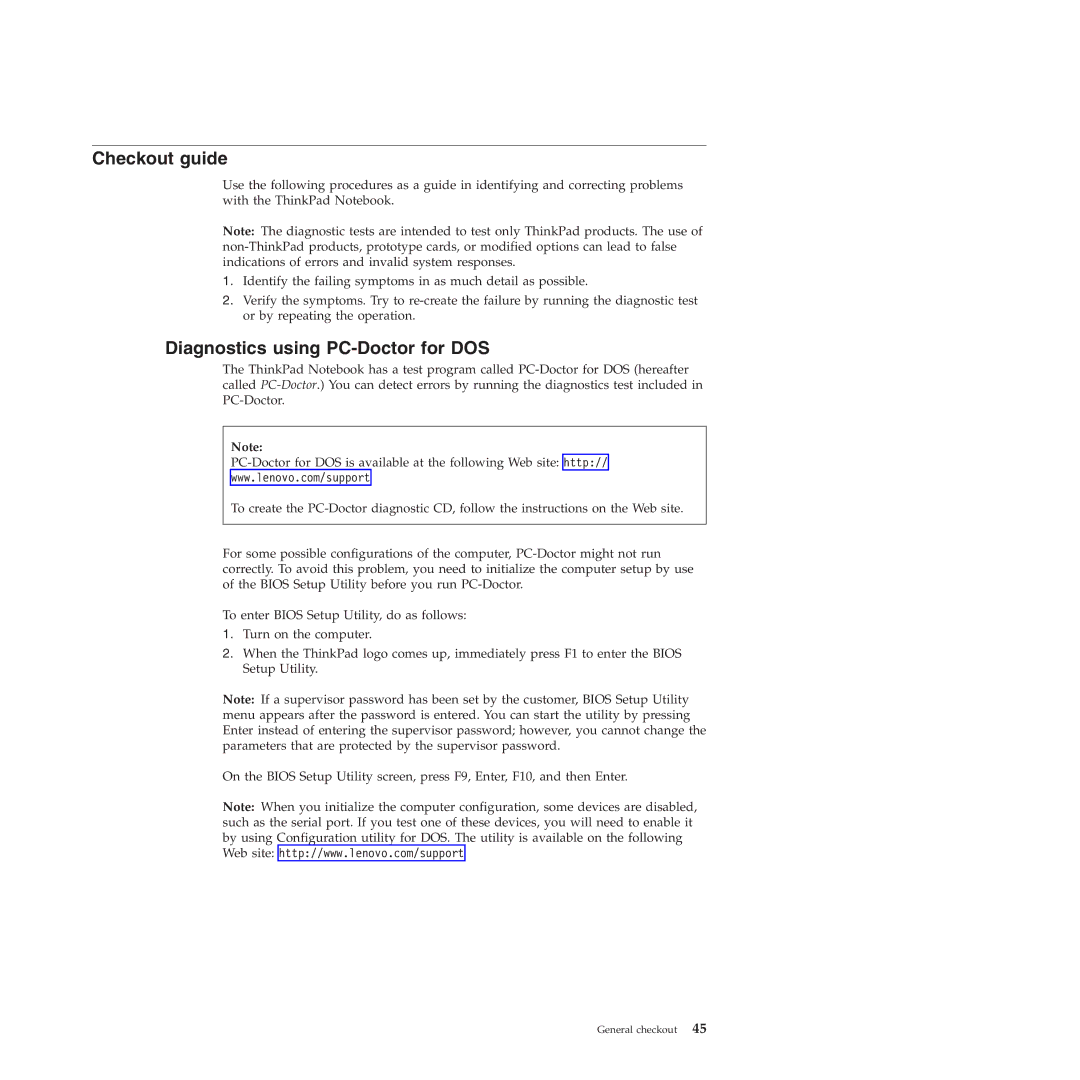
Checkout guide
Use the following procedures as a guide in identifying and correcting problems with the ThinkPad Notebook.
Note: The diagnostic tests are intended to test only ThinkPad products. The use of
1.Identify the failing symptoms in as much detail as possible.
2.Verify the symptoms. Try to
Diagnostics using PC-Doctor for DOS
The ThinkPad Notebook has a test program called
Note:
www.lenovo.com/support
To create the
For some possible configurations of the computer,
To enter BIOS Setup Utility, do as follows:
1.Turn on the computer.
2.When the ThinkPad logo comes up, immediately press F1 to enter the BIOS Setup Utility.
Note: If a supervisor password has been set by the customer, BIOS Setup Utility menu appears after the password is entered. You can start the utility by pressing Enter instead of entering the supervisor password; however, you cannot change the parameters that are protected by the supervisor password.
On the BIOS Setup Utility screen, press F9, Enter, F10, and then Enter.
Note: When you initialize the computer configuration, some devices are disabled, such as the serial port. If you test one of these devices, you will need to enable it by using Configuration utility for DOS. The utility is available on the following Web site: http://www.lenovo.com/support
General checkout 45
